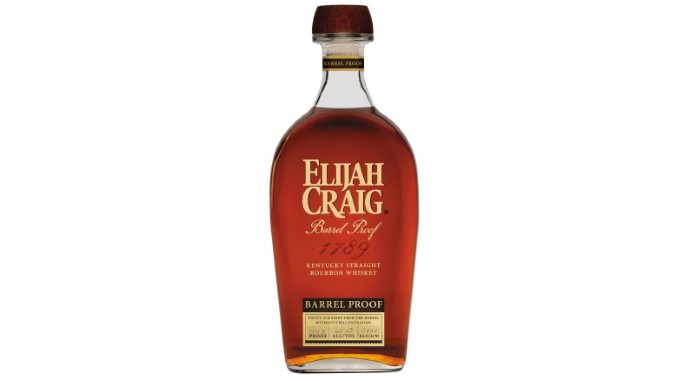Elijah Craig Barrel Proof Bourbon (Batch C922)
Photos via Heaven Hill
At this point, I’ve introduced Elijah Craig Barrel Proof reviews or tastings at Paste often enough that almost anything general I’d say about the product will simply be me repeating myself. Suffice to say, here’s the short, short version.
ECBP is the cask strength, 12-year-old version of Heaven Hill’s classic mid-shelf champion Elijah Craig Small Batch, a whiskey that made our list of the best bourbons for under $30. ECBP is beloved in the whiskey sphere for its potent flavors, often soaring proof point and bang-for-your-buck. Unlike so many well-aged, high-proof bourbons that draw rave reviews, it’s fairly accessible thanks to its trio of yearly releases, and its MSRP of around $70 (Heaven Hill says $60, but it’s not easy to find for that) is hard to beat when you compare it with almost all of its direct competition. There’s a reason why so many list it as a perennial favorite, especially if you enjoy Heaven Hill’s distillery house style.
A quick primer on any given ECBP label: This release is “C922,” which simply means the following. “C” means this is the third of three releases for 2022, to be followed by next year’s “A” in early 2023. The “9” means that this is a September release. And the “22” just stands for 2022. The next release will likely be A123, assuming the usual schedule holds.
As for this release, its 62.4% ABV (124.8 proof) is the highest for the ECBP series in 2022, and a level that will likely be welcome news to bourbon geeks who had worried that the series would permanently be dipping beneath the 120 proof mark, as it has done several times in the last few years. Still, event his 124.8 proof mark does continue the trend of relatively lower strengths for ECBP, given that it was previously common for the series to feature proofs in the 130s or even 140s. Personally, I’m fine with this—my favorite ECBP releases are often in the 120s anyway—but I know there are plenty of “proof hounds” out there who are still wondering if ECBP will ever return to its more high-octane roots. They’ll have to keep waiting for at least one more release, for that information.
-

-

-

-

-

-

-

-

-

-

-

-

-

-

-

-

-

-

-

-

-

-

-

-

-

-

-

-

-

-

-

-

-

-

-

-

-

-

-

-








































